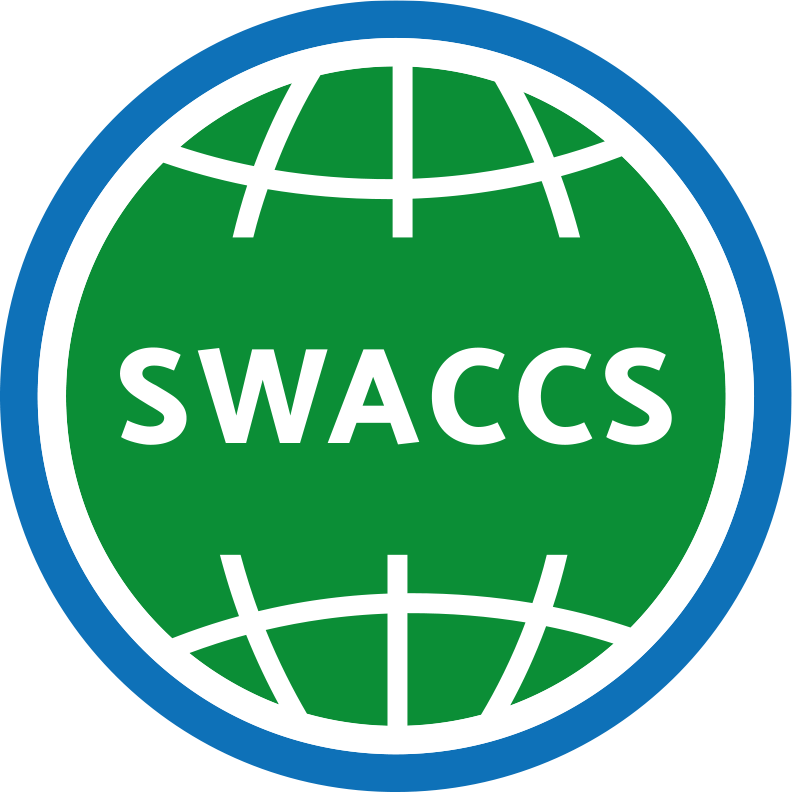SWACCS Seminar Series:
From epidemiologically identified EDC mixtures to epigenetic effects
When: Wednesday, 08. June 2022, 14:00 - 15:00
Where: Zoom Meeting ID: 628 3689 0599
Speaker: Katherine Svensson, is a PhD student in the Department of Health Sciences at Karlstad University
Title: “Exposure of EDC and nutrition during pregnancy in relation to children’s growth and body composition”
Abstract:
Exposure to endocrine disrupting chemicals (EDCs) may impact early growth. Therefore, we aimed to evaluate the effect of prenatal exposure to a mixture of 26 EDCs on birthweight and weight trajectories in the SELMA study. We used weighted quantile sum (WQS) regression to estimate the mixture effect and identify chemicals of concern. In this analysis, we found that a one-unit increase in the EDC mixture WQS index, was associated with decreased birthweight z-scores, slower infant growth spurt rate and delayed age at infant peak growth velocity (PGV) after adjusting for potential confounders. Stratified analysis by sex, showed that delayed age at infant PGV was mostly observed in girls. Identified chemicals of concern included perfluorinated alkyl substances (PFAS), Triclosan, phthalates, non-phthalate plasticizers, bisphenols, polycyclic aromatic hydrocarbons, pesticides, and PCBs. I summary, prenatal exposure to EDC mixtures was associated with lower birthweight and altered infant weight gain trajectories. 2) Good nutrition is of vital importance during pregnancy to maintain a healthy pregnancy outcome. Our objective was to explore if maternal diet is associated with children’s body composition at 7 years of age among participants in the SELMA study. Nutrient intake was calculated based on a food-frequency questionnaire (FFQ) and diet quality was assessed with a summary index, “My Nutrition Index” (MNI). We used linear regression models to assess the relationship between MNI and children’s body composition measurements. Results indicate that better adherence to diet recommendations is associated with greater height among all children. Stratified models by sex, showed opposite associations for boys and girls. Better adherence to diet recommendations was among boys associated with greater BMI z-scores, % body fat, and skinfolds. Whereas the opposite was found among girls. In summary, these results suggest that prenatal diet may have long-term effect on children’s body composition with differences for boys and girls.
Speaker: Polina Lizunkova, PhD student at Department of Organismal Biology, Environmental Toxicology, Uppsala University.
Title: “Endocrine disrupting chemical mixture associated with lower birth weight in humans drives cellular and molecular changes in human mesenchymal stem cells”
Abstract:
Endocrine disrupting chemicals (EDCs) alter functions of the endocrine system. Exposure to EDCs during sensitive developmental periods, such as during fetal and infant stages, is of particular concern, as hormonal signalling plays a vital part in development, e.g. in metabolic programming. Indeed, increasing evidence shows that prenatal EDC exposure is associated with metabolic changes and outcomes such as lower birth weight, child adiposity and high blood pressure. However, most of research studies and risk assessment regulations focus on one EDC at a time, while humans experience daily exposure to mixtures of EDCs from different sources. Hence, human health effects may be underestimated if the chemical in question is present with several other chemicals that may contribute to the same adverse outcome. Furthermore, molecular mechanisms underlying early life programming effects are not delineated. In my presentation, I will show results of a study where we delineated epigenetic changes induced by an EDC mixture that had been derived from epidemiological data. Such epigenetic changes could underlie adverse metabolic programming outcomes in humans and thus strengthen epidemiological findings.
Join the Seminar here
